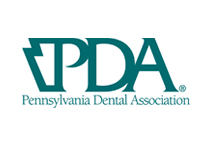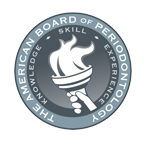Introduction:
Winter is a season of joy and festivities, but it also brings specific challenges for maintaining optimal oral health. From cold winds to holiday treats, various factors can impact your teeth during the chilly months. This guide aims to provide a detailed overview of essential winter tooth care practices, offering insights into maintaining a healthy and radiant smile despite the challenges.
Summary
1. Maintain Regular Oral Hygiene
3. Protect Against Sensitivity
6. Winter Sports and Dental Safety
10. Mindful Consumption of Acidic Foods
1. Maintain Regular Oral Hygiene:
A. Brushing Techniques:
i. Use a Soft-Bristle Toothbrush: Opt for a toothbrush with soft bristles to avoid damaging the enamel and gums.
ii. Brush for at Least Two Minutes: Ensure thorough cleaning by dedicating at least two minutes to brushing, and covering all tooth surfaces.
iii. Replace Your Toothbrush: Regularly change your toothbrush every 3-4 months to maintain effective cleaning.
B. Flossing Habits:
i. Floss Daily: Incorporate daily flossing into your routine to remove plaque and debris from between teeth.
ii. Consider a Water Flosser: Enhance your flossing routine with a water flosser for more efficient cleaning.
iii. Be Gentle: Practice gentle flossing to prevent irritation and damage to the gums.
C. Mouthwash:
i. Choose Fluoride-Based Mouthwash: Select a mouthwash containing fluoride to strengthen enamel and prevent cavities.
ii. Rinse After Meals: Rinse your mouth after meals to neutralize acids and promote a healthy oral environment.
iii. Opt for Alcohol-Free Formulas: Choose alcohol-free mouthwash to avoid drying out the mouth and causing discomfort.
D. Regular Dental Checkups:
i. Schedule a Pre-Winter Checkup: Visit your dentist before winter to address any existing dental issues and ensure a clean slate.
ii. Promptly Address Issues: Address any dental problems promptly to prevent them from worsening.
iii. Discuss Concerns with Your Dentist: Communicate openly with your dentist about any specific concerns or changes in your oral health.
2. Stay Hydrated:
A. Drink Ample Water:
i. Combat Dry Mouth: Stay hydrated to combat dry mouth, a common issue during winter.
ii. Consume at Least Eight Glasses Daily: Aim to drink at least eight glasses of water daily to maintain adequate hydration.
iii. Limit Sugary and Acidic Beverages: Minimize the intake of sugary and acidic beverages, as they can contribute to dental issues.
B. Use Humidifiers:
i. Maintain Indoor Humidity: Keep indoor humidity at a comfortable level to prevent dry mouth.
ii. Consider a Humidifier: Use a humidifier in bedrooms, especially during sleep, to prevent dryness.
iii. Moisten the Air: Ensure the air in your living spaces remains moist to support saliva production.
C. Chew Sugar-Free Gum:
i. Stimulate Saliva Flow: Chew sugar-free gum to stimulate saliva flow and prevent dry mouth.
ii. Choose Gum with Xylitol: Opt for gum with xylitol, a sugar substitute that may offer additional dental benefits.
iii. Use Gum as a Quick Remedy: Use sugar-free gum as a quick remedy for dry mouth, especially when water is not readily available.
D. Limit Caffeine and Alcohol:
i. Dehydration Risks: Both caffeine and alcohol can contribute to dehydration; consume them in moderation.
ii. Rinse Mouth After Consumption: Rinse your mouth with water after consuming caffeinated or alcoholic beverages.
iii. Maintain Hydration Balance: Balance your beverage intake with water to maintain overall hydration.
3. Protect Against Sensitivity:
A. Use a Desensitizing Toothpaste:
i. Switch to Sensitive Toothpaste: If you experience sensitivity, switch to a toothpaste designed for sensitive teeth.
ii. Direct Application: Apply toothpaste directly to sensitive areas before bedtime for extended protection.
iii. Consult Your Dentist: Consult your dentist for personalized recommendations on desensitizing toothpaste brands.
B. Avoid Extreme Temperatures:
i. Cautious Hot Beverage Consumption: Consume hot beverages cautiously to prevent sensitivity.
ii. Allow Foods to Cool: Allow hot foods to cool slightly before consumption to reduce temperature-related sensitivity.
iii. Minimize Exposure to Cold Air: Minimize exposure to extremely cold air to prevent discomfort and sensitivity.
C. Consider a Mouthguard:
i. For Teeth Grinding: If you grind your teeth, consider using a mouthguard at night to protect against sensitivity.
ii. Custom-Fit Options: Consult your dentist for a custom-fit mouthguard for optimal protection.
iii. Prevent Sensitivity from Grinding: Addressing teeth grinding can prevent sensitivity caused by enamel wear.
D. Maintain a Balanced Diet:
i. Rich in Calcium and Vitamin D: Include foods rich in calcium and vitamin D to strengthen enamel and reduce sensitivity.
ii. Dairy Products and Leafy Greens: Consume dairy products, leafy greens, and fortified foods for dental health.
iii. Consult a Nutritionist: Seek advice from a nutritionist to ensure a balanced diet that supports both oral and overall health.
4. Lip and Oral Skin Care:
A. Use Lip Balm:
i. Hydrating Lip Balm with SPF: Apply a hydrating lip balm with SPF to protect lips from harsh winter elements.
ii. Regular Reapplication: Reapply lip balm regularly, especially before outdoor activities, to maintain moisture.
iii. Choose Quality Formulas: Select lip balms with quality ingredients to avoid potential irritants.
B. Avoid Licking Your Lips:
i. Causes of Dryness: Licking lips can lead to dryness and chapping; break the habit of maintaining lip health.
ii. Use Lip Balm Instead: Instead of saliva, use lip balm to moisturize your lips throughout the day.
iii. Conscious Lip Care: Stay conscious of your lip care habits to prevent unnecessary irritation.
C. Protect Against Wind:
i. Use Scarves or Face Masks: Shield your face from harsh winds with scarves or face masks during outdoor activities.
ii. Prevent Chapped Lips: Protect your lips from chapping by covering them in cold and windy conditions.
iii. Moisturize Before Going Outdoors: Moisturize your face and lips before heading outdoors to create a protective barrier.
D. Stay Mindful of Oral Irritations:
i. Cold Sores and Cracked Lips: Watch for signs of cold sores or cracked lips and address them promptly.
ii. Antiviral Creams for Cold Sores: Use antiviral creams as recommended by healthcare professionals for cold sores.
5. Dietary Considerations:
A. Consume Nutrient-Rich Foods:
i. Well-Balanced Diet: Maintain a well-balanced diet for overall health, which positively impacts oral health.
ii. Include Fruits and Vegetables: Include a variety of fruits and vegetables for essential vitamins and antioxidants.
iii. Nourishment for Your Smile: Recognize that what you eat contributes to the health and appearance of your smile.
B. Limit Sugary Treats:
i. Impact on Cavities: Holiday sweets can contribute to cavities; enjoy them in moderation.
ii. Rinse After Indulging: Rinse your mouth with water after indulging in sugary treats to minimize the impact on your teeth.
iii. Balanced Approach: Strike a balance between enjoying seasonal treats and maintaining dental health.
C. Choose Teeth-Friendly Snacks:
i. Opt for Healthy Snacks: Choose snacks like cheese, nuts, and crunchy fruits that are friendly to your teeth.
ii. Stimulate Saliva Production: Opt for snacks that stimulate saliva production for a natural oral cleansing effect.
iii. Minimize Sticky or Sugary Snacks: Reduce the consumption of sticky or sugary snacks that can adhere to teeth and promote cavities.
D. Consider Vitamin Supplements:
i. Consult Healthcare Provider: Consult your healthcare provider about vitamin supplements to address potential deficiencies.
ii. Essential Vitamins for Oral Health: Ensure adequate intake of vitamins crucial for maintaining optimal oral health.
iii. Supplements for Nutritional Gaps: Consider supplements as a means to fill nutritional gaps in your diet, with guidance from healthcare professionals.
6. Winter Sports and Dental Safety:
A. Wear a Mouthguard:
i. Protection During Winter Sports: Use a mouthguard during winter sports activities like skiing, snowboarding, and ice skating.
ii. Properly Fitted Guards: Ensure your mouthguard fits properly for effective protection against dental injuries.
iii. Prevent Injuries from Falls or Collisions: Mouthguards can significantly reduce the risk of dental injuries caused by falls or collisions.
B. Stay Hydrated During Activities:
i. Bring Water Along: Stay hydrated during winter sports by bringing water along to prevent dry mouth.
ii. Awareness of Oral Health: Be mindful of your oral health even during active outdoor activities in cold conditions.
iii. Combat Dry Mouth: Hydration helps combat dry mouth, reducing the risk of dental issues associated with low saliva production.
C. Address Emergency Situations Promptly:
i. Immediate Dental Care: Seek immediate dental care for any injuries sustained during winter sports.
ii. Emergency Dental Kit: Keep an emergency dental kit with you for quick response to unexpected oral health issues.
iii. Prevent Complications: Acting promptly can prevent complications and ensure better outcomes in case of accidents.
D. Follow Proper Equipment Guidelines:
i. Use Helmets and Protective Gear: When engaging in winter sports, use helmets and appropriate protective gear.
ii. Proper Equipment Fit: Ensure that your equipment fits properly to avoid facial injuries that may affect oral health.
iii. Prioritize Safety: Prioritize both oral and overall safety by adhering to recommended guidelines for winter sports.
7. Combating Bad Breath:
A. Stay Hydrated:
i. Drink Water Throughout the Day: Sip water consistently to maintain saliva production and wash away bacteria.
ii. Use Sugar-Free Gum: Chewing sugar-free gum can stimulate saliva flow, reducing the risk of bad breath.
iii. Limit Odorous Foods: Minimize the consumption of strong-smelling foods that contribute to bad breath.
B. Maintain Proper Oral Hygiene:
i. Clean Your Tongue: Use a tongue scraper or your toothbrush to remove bacteria and debris from the tongue’s surface.
ii. Use an Antiseptic Mouthwash: Incorporate an antiseptic mouthwash into your routine to kill bacteria causing bad breath.
iii. Regular Dental Cleanings: Schedule regular dental cleanings to address any lingering issues contributing to bad breath.
C. Watch Your Diet:
i. Include Fresh Fruits and Vegetables: Crisp fruits and vegetables help clean teeth and freshen breath.
ii. Avoid Excessive Garlic and Onions: Minimize the intake of garlic and onions, notorious for causing persistent bad breath.
iii. Green Tea Benefits: Drink green tea, known for its antibacterial properties that can help combat bad breath.
D. Address Underlying Issues:
i. Consult a Dentist or Physician: Persistent bad breath may indicate underlying dental or health issues; consult a professional.
ii. Consider Allergies or Sinus Problems: Allergies or sinus problems can contribute to bad breath; seek appropriate treatment.
iii. Regular Health Checkups: Schedule regular health checkups to address systemic issues that may impact your breath.
8. Mindful Teeth Whitening:
A. Limit Staining Substances:
i. Reduce Coffee and Tea Consumption: Cut back on coffee and tea intake, which can stain teeth over time.
ii. Moderate Red Wine Consumption: Limit red wine consumption, as it contains compounds that contribute to tooth discoloration.
iii. Be Cautious with Berries: Berries, while nutritious, can stain teeth; rinse or brush promptly after consumption.
B. Whitening Toothpaste:
i. Choose a Reputable Brand: Select a whitening toothpaste from a reputable brand for safe and effective results.
ii. Follow Instructions: Adhere to the product’s instructions regarding frequency and duration of use.
iii. Monitor Sensitivity: If sensitivity occurs, discontinue use and consult your dentist for alternative options.
C. Professional Whitening Options:
i. In-Office Teeth Whitening: Consider professional, in-office teeth whitening for quick and noticeable results.
ii. Custom At-Home Whitening Kits: Dentist-prescribed at-home whitening kits provide a more controlled and gradual approach.
iii. Discuss Options with Your Dentist: Consult your dentist to determine the most suitable whitening option based on your dental health.
D. Maintain Regular Oral Care:
i. Brush After Consuming Staining Foods: Brush your teeth after consuming foods and beverages known to cause stains.
ii. Regular Dental Cleanings: Schedule regular dental cleanings to remove surface stains and maintain overall oral health.
iii. Avoid Tobacco Products: Quitting smoking or using tobacco products can prevent teeth from yellowing and improve overall oral health.
9. Holistic Oral Wellness:
A. Mind-Body Connection:
i. Stress Management: Practice stress-reducing activities like meditation and yoga, as stress can impact oral health.
ii. Regular Exercise: Engage in regular exercise to promote overall health, which positively influences oral wellness.
iii. Adequate Sleep: Ensure sufficient sleep, as it contributes to a robust immune system and overall well-being.
B. Oral Care for All Ages:
i. Children’s Dental Routine: Establish a consistent dental routine for children, emphasizing proper brushing and flossing.
ii. Teenagers and Orthodontics: Monitor and address orthodontic needs in teenagers to ensure proper alignment and oral health.
iii. Oral Health in Aging Adults: Address unique oral health challenges in aging adults, such as dry mouth and gum disease.
C. Environmental Considerations:
i. Avoid Tobacco Smoke: Steer clear of secondhand smoke, as it can contribute to various oral health issues.
ii. Fluoride and Water Quality: Be aware of the fluoride levels in your water supply and consider fluoride supplements if needed.
iii. Oral Care in Urban Environments: Urban environments may have unique challenges; adapt your oral care routine accordingly.
D. Collaboration with Oral Health Professionals:
i. Regular Dental Checkups: Schedule regular dental checkups to address concerns and prevent potential issues.
ii. Collaborate with Specialists: Consult with dental specialists, such as periodontists or orthodontists, as needed for specialized care.
iii. Open Communication: Maintain open communication with your dentist, sharing any changes or concerns about your oral health.
10. Mindful Consumption of Acidic Foods:
A. Limit Acidic Food Intake:
i. Awareness of Acidic Foods: Be mindful of foods and beverages with high acidity levels, such as citrus fruits and sodas.
ii. Moderation is Key: Consume acidic foods in moderation to prevent enamel erosion and tooth sensitivity.
iii. Rinse Mouth After Consumption: Rinse your mouth with water after consuming acidic foods to neutralize acids and protect enamel.
B. Consider pH Levels:
i. Understanding pH Levels: Educate yourself about the pH levels of common foods and drinks to make informed choices.
ii. Choose Less Acidic Alternatives: Opt for less acidic alternatives when possible to minimize the impact on your tooth enamel.
iii. Balanced Diet: Strive for a balanced diet that includes a variety of nutrient-rich, non-acidic foods for overall health.
C. Oral Care After Acidic Foods:
i. Wait Before Brushing: Avoid brushing your teeth immediately after consuming acidic foods; wait at least 30 minutes to prevent enamel damage.
ii. Use Fluoride Toothpaste: Brush with fluoride toothpaste to strengthen enamel and counteract the effects of acidity.
D. Monitor pH Balance in Saliva:
i. Saliva’s Protective Role: Understand that saliva helps maintain pH balance in the mouth, protecting against acidic challenges.
ii. Stay Hydrated: Drinking water helps maintain saliva production, aiding in the natural defense against acid attacks.
iii. Chew Sugar-Free Gum: Chewing sugar-free gum stimulates saliva flow, assisting in neutralizing acids and maintaining oral health.
FAQs :
Q1: How can I combat bad breath during winter?
A1: Stay hydrated, practice good oral hygiene, watch your diet, and address underlying issues through consultation with a dentist or physician.
Q2: Are there natural remedies for teeth whitening?
A2: Some natural remedies include baking soda and activated charcoal; however, consult your dentist for safe and effective options.
Q3: How does stress impact oral health?
A3: Stress can contribute to issues like teeth grinding and gum disease; manage stress through activities like meditation and exercise.
Q4: Is it normal for oral health to change with age?
A4: Yes, oral health needs evolve with age; adapt your oral care routine and seek age-appropriate dental care.
Q5: How can I address environmental factors affecting oral health?
A5: Avoid secondhand smoke, be aware of water quality, and adapt your oral care routine to address unique challenges in your environment.
Conclusion:
Winter tooth care demands a holistic approach, incorporating regular oral hygiene, hydration, sensitivity prevention, lip, and skin care, mindful dietary choices, and safety measures during winter sports. By embracing these detailed strategies and consistently prioritizing your oral health, you can confidently face the challenges of winter, ensuring your smile remains radiant and healthy throughout the season. Remember, proactive care today leads to a brighter, healthier smile tomorrow.
If you’re seeking personalized assistance or want to schedule a consultation, don’t hesitate to reach out to our dedicated team at (267) 908-4867. Visit our https://premierperiodonticspa.com/ for more information. Your smile is our top priority, and we are steadfast in our commitment to providing you with the information and support needed to make your dental experience both comfortable and successful. Trust us to prioritize your oral health journey, and we eagerly anticipate being a partner in your quest for a healthy and radiant smile.








